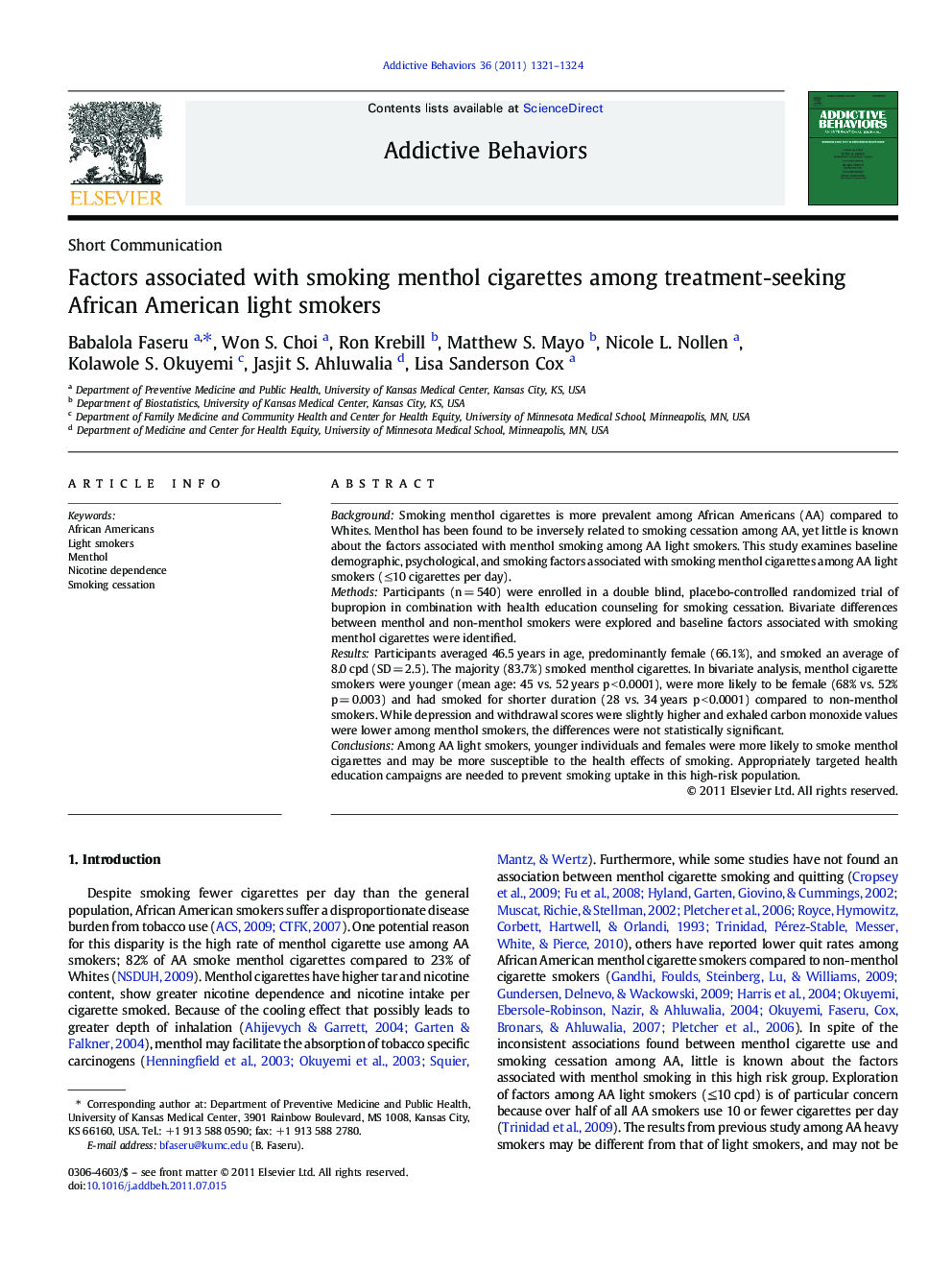| Article ID | Journal | Published Year | Pages | File Type |
|---|---|---|---|---|
| 899564 | Addictive Behaviors | 2011 | 4 Pages |
BackgroundSmoking menthol cigarettes is more prevalent among African Americans (AA) compared to Whites. Menthol has been found to be inversely related to smoking cessation among AA, yet little is known about the factors associated with menthol smoking among AA light smokers. This study examines baseline demographic, psychological, and smoking factors associated with smoking menthol cigarettes among AA light smokers (≤10 cigarettes per day).MethodsParticipants (n = 540) were enrolled in a double blind, placebo-controlled randomized trial of bupropion in combination with health education counseling for smoking cessation. Bivariate differences between menthol and non-menthol smokers were explored and baseline factors associated with smoking menthol cigarettes were identified.ResultsParticipants averaged 46.5 years in age, predominantly female (66.1%), and smoked an average of 8.0 cpd (SD = 2.5). The majority (83.7%) smoked menthol cigarettes. In bivariate analysis, menthol cigarette smokers were younger (mean age: 45 vs. 52 years p < 0.0001), were more likely to be female (68% vs. 52% p = 0.003) and had smoked for shorter duration (28 vs. 34 years p < 0.0001) compared to non-menthol smokers. While depression and withdrawal scores were slightly higher and exhaled carbon monoxide values were lower among menthol smokers, the differences were not statistically significant.ConclusionsAmong AA light smokers, younger individuals and females were more likely to smoke menthol cigarettes and may be more susceptible to the health effects of smoking. Appropriately targeted health education campaigns are needed to prevent smoking uptake in this high-risk population.
► Majority of African American (AA) light smokers prefer menthol cigarettes. ► We examined factors associated with smoking menthol cigarettes in AA light smokers. ► AA light menthol cigarette smokers are more likely to be younger. ► AA light menthol cigarette smokers are more likely to be females.
